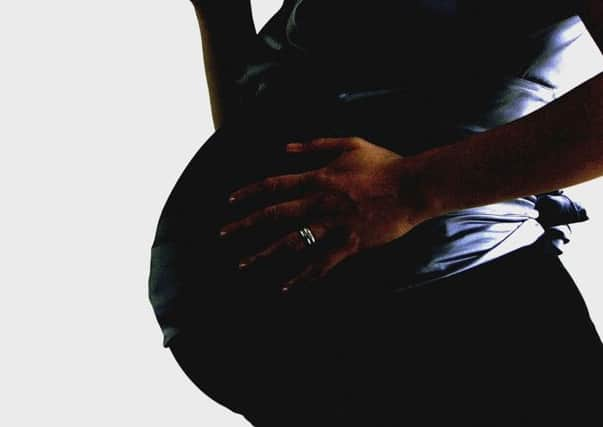Two in five new Scots mothers obese or overweight


More than 10,000 women who had babies in Scotland in the 12 months from the end of March 2012 to March 2013 were obese, representing 18.1 per cent of all new mothers.
In the study, which measured body mass for the first time, overweight mothers accounted for 23.8 per cent of the 55,542 deliveries in 2012/2013, equivalent to more than 13,000 women.
Advertisement
Hide AdAdvertisement
Hide AdThe figures mean that overweight and obese women accounted for slightly more births in Scotland than women who were a healthy weight - 41.7 per cent of the total.
Obese mothers are more likely to be from deprived areas, are older and at higher risk of requiring an emergency caesarean, according to the report from ISD Scotland -the information services division of the NHS.
Orkney’s health board recorded the highest number of obese mothers - 27.6 per cent of those giving birth over the 12 month period were classed as obese, and 31 per cent overweight -much higher than the Scottish average of 18.1 per cent and 23.8 per cent respectively.
A BMI of 25 to 30 is classed as overweight, and 30 to 35 is obese.
However, only mothers whose BMI exceeds 35 - “morbidly obese” - are considered abnormal by the health service and taken out of the normal clinical pathway for specific help and support.
Gillian Smith, director of the Royal College of Midwives Scotland, said: “We are in the grip of an obesity epidemic.
“Some of the knock-on effects for pregnant women include the impact on their mobility, and the mode of delivery because we know they will have to keep an eye on hypertension.”
Ms Smith added that obese women were more likely to suffer from infertility, and said that more needed to be done to confront expectant mothers about their weight.
Advertisement
Hide AdAdvertisement
Hide AdShe added: “The idea that you have to eat for two is a fallacy.
“Putting on a stone during pregnancy is too much.”
Last year (2013), a study by Edinburgh and Aberdeen universities found that children born to obese mothers are more likely to die early as adults than those whose mothers were a normal weight.
Overweight mothers’ offspring are one-third more likely to die before the age of 55, mainly as a result of heart disease, the researchers found.
Babies born to obese mothers are also more likely to suffer from spina bifida and other birth defects as well as being overweight themselves when they are born or later in life.
As long ago as 2009, one of Scotland’s largest maternity units revealed it was struggling to cope with an epidemic of overweight mothers-to-be.
The Princess Royal maternity hospital in Glasgow was forced to revise its obesity thresholds because of a growing number of severely overweight patients.
A Scottish Government spokesman said: “An action plan was published in January 2011 to help NHS Boards, local authorities and others to improve the nutrition of pregnant women, babies and young children.”